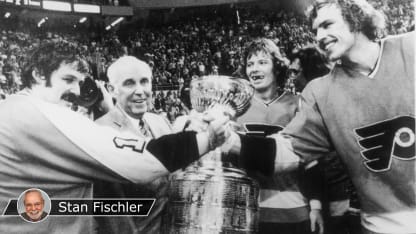Led by Hall of Famers Gordie Howe, Ted Lindsay, Red Kelly and Terry Sawchuk, the Red Wings finished the 1952-53 season with 90 points, 21 more than the third-place Boston Bruins. Howe led the League in goals (49) assists (46) and points (95). Boston's leading scorer, Fleming Mackell, was barely visible among NHL sharpshooters with 44 points, 51 fewer than Howe.

